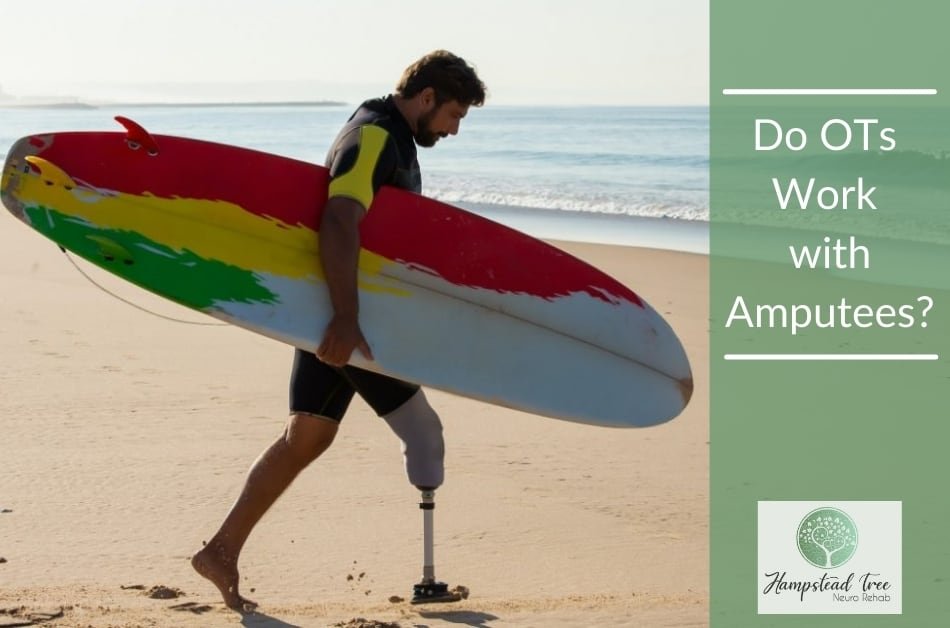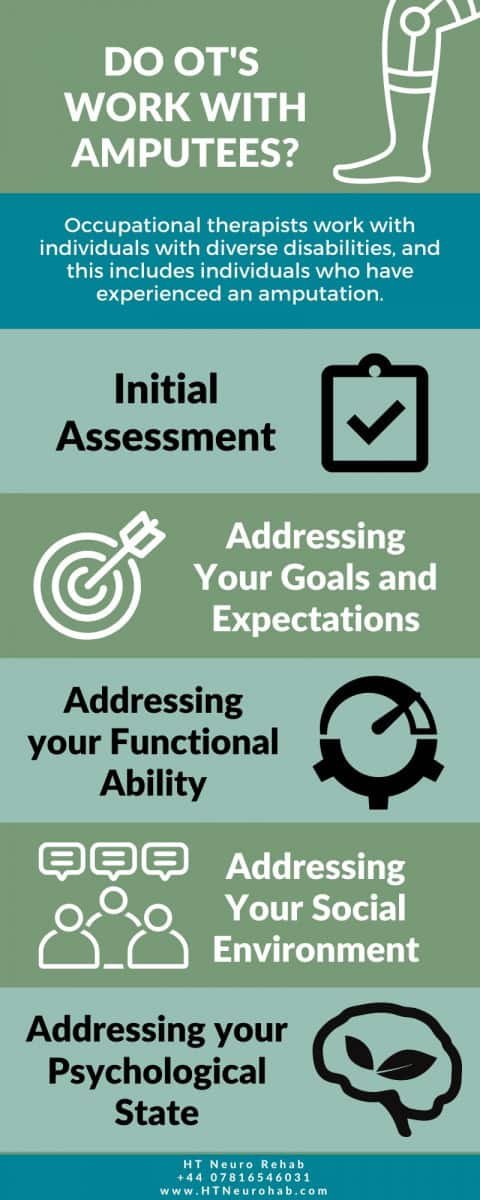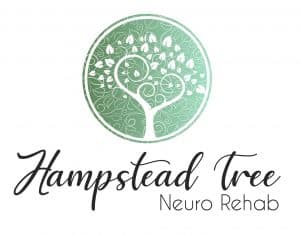
Have you or a loved one dealt with amputation and are looking into the different types of therapy available for amputees? Occupational therapists work with their patients to identify the areas of their daily lives that are affected by their disability and help them to spot treat these impairments and set goals so that they can gain independence and confidence in these areas.
Occupational therapists work with individuals with diverse disabilities, and this includes individuals who have experienced an amputation. In fact, occupational therapists are often an important part of an amputee’s recovery and treatment plan, working alongside physiotherapists.
If you or a loved one are an amputee and are wondering if occupational therapy is the right choice and what occupational therapy for an amputee looks like, you’ve come to the right place. Keep reading to find out all the details on what occupational therapy for amputees really entails.
How Occupational Therapy Helps People
Occupational therapists work with a variety of different kinds of patients in order to “identify the areas of function affected by their [patients] illness or disability.” Once found, occupational therapists help their patients set functional goals as a part of their treatment that will “maximize [their] independence in these areas” ( Oxford University Hospitals).
According to Oxford University Hospitals, occupational therapists help patients whose impairments affect important functional areas of their lives, such as:
- Personal care activities
- Domestic tasks
- Work skills
- Social skills
- Posture management
- Community skills
Occupational therapists are there to help treat impairments that affect the completion of daily tasks of their patients. This allows patients to make meaningful progress in improving their day-to-day functioning, which is perhaps one of the most important parts of disability recovery.
According to the Chartered Society of Physiotherapy, occupational therapy is holistic- meaning it takes physical, psychological, and social factors to form an all-encompassing therapy for the best results.
Occupational therapists regularly work with amputees to help them recover in these same areas.
What Does Occupational Therapy for Amputees Look Like?
Occupational therapists can work with amputee patients both pre and post-operation.
There are four main components of occupational therapy rehabilitation for amputees. Treatment addresses each of these factors:
- “Functional ability
- Setting realistic goals
- Psychological issues
- Family and work situations” (social factors) (NHS – National Health Service)
For visual learners or someone wanting to hear from someone who has been through it themselves, check out this YouTube video that details what occupational therapy for amputees looks like from the perspective of an amputee.
Initial Assessment
Occupational therapists will perform an initial assessment of your functional ability and other important factorsthat involves meeting you in your day-to-day residence/situation.
They’ll work with you to discover what functional areas you might need extra assistance with. Do you struggle with putting on clothes? Making meals? Or perhaps with bathing yourself? These are the types of areas your occupational therapist will first assess.
They’ll not only take into account your general level of physical functioning but also your environment, social support systems, psychological state, and more.
Once all of these factors have been assessed, your occupational therapist can start working with you to develop a custom treatment plan based on your condition.

Addressing Your Goals and Expectations
The first part of your treatment with your occupational therapist will involve them assessing your personal goals and expectations of your recovery.
They’ll first hear out your own individual goals and expectations about what you want your life to look like during and after recovery. They’ll make sure that these expectations are not too lofty or unrealistic based on your circumstance.
If your goals and expectations are reasonable, they’ll work with you to help you achieve them. If they find them to be unrealistic, they’ll work with you to help make sure your goals are achievable to ensure that your plan cultivates confidence and personal empowerment.
Either way, your occupational therapist’s first priority is making sure you’ll be able to achieve your recovery goals to the best of your abilities.
Addressing your Functional Ability
In order to help your day-to-day physical functioning, occupational therapists will work with amputees to treat areas in which their physical functionality is low.
Your occupational therapist will teach you “transfer techniques,” which will help you move from place to place more efficiently (NHS – National Health Service). You may learn how to move from your wheelchair to your bed, or from your wheelchair to the toilet. Your occupational therapist will help show you the best ways to do so based on your personal level of functioning.
They’ll also help teach you techniques for re-learning basic tasks like dressing yourself, preparing meals, and helping you find new ways to return to work and hobbies.
They may also help recommend and find equipment for you. This can include toilet alterations, handrails, bath seats or stools, ramps, barriers, seat slings, stair climbers/elevators, and more. Making sure your living environment is a safe place for you to move around in is one of your occupational therapist’s top priorities.
This attention to your functional ability is designed to get you to a place in which you can perform daily tasks either independently or to the best of your physical ability.
Addressing Your Social Environment
Your occupational therapist will also take inventory of your day-to-day social environment, as this is the situation in which you will be recovering. Do you live with family members or alone? Do you have friends that visit you regularly? Are you employed at a workplace with other coworkers or peers? These are the factors your occupational therapist will be taking into account.
They’ll want to know what your social support system looks like. It’s unrealistic to expect that a recovering amputee can get through their struggle alone- everyone needs a support system they can go to in times of need, and there is no shame in wanting someone to talk to during this challenging period.
If they decide that your social network is lacking, they may recommend and help you find opportunities in the community for social recreational activities to help supplement your healthy social life and increase the frequency of positive leisure activities you have available to you.
This absolutely doesn’t mean you can’t be an introvert at heart, but during a time like this, it’s important for you to at least know you have people around to count on if you need it.
Addressing Your Psychological State
One of the most important things your occupational therapist must take into account is your psychological state. Amputations are life-altering, and it’s important for your occupational therapist to make sure you are in a healthy mindset to make sure your recovery goes as smoothly as possible for you.
Amputee rehabilitation can be scary, and many patients feel anxious about their new and overwhelming recovery process. Your occupational therapist will check for symptoms of anxiety throughout “all episodes of care”(NHS (National Health Service). If they notice symptoms of anxiety, they’ll help you find resources to treat said symptoms.
Maintaining a healthy body image is also an important part of amputee recovery. One scientific study found that lower-limb amputation “significantly influence patients’ body image.” Occupational therapists will check in with you regarding your self-image, and help you locate helpful resources if they believe you may be struggling with body image issues.
Use Occupational Therapy to Boost An Amputees Recovery Period
Occupational therapy is an important and integral part of the recovery process for amputees. They can help you bring functionality back into areas of your daily life in which you were struggling, find helpful equipment for you to reinforce the safety of your home, assist you with readjusting your social life, and assess your psychological state to ensure your recovery process is going smoothly.
Recovery is a challenge, but it can also be exciting. It’s important to persevere to the best of your abilities and adhere to recommendations by your doctors and occupational therapists. Hang in there, and good luck!
Content Disclaimer
The information contained above is provided for information purposes only. The contents of this Blog article are not intended to amount to advice, and you should not rely on any of the contents of this Blog article. Professional advice should be obtained before taking or refraining from taking any action as a result of the contents of this Blog article. OccupationaltherapyBlog disclaims all liability and responsibility arising from any reliance placed on any of the contents of this Blog article.


